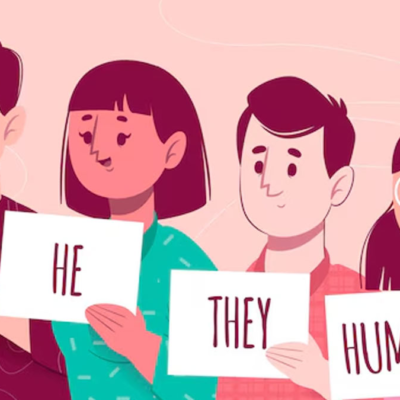In an unexpected move that stunned diplomats across the Americas, the United States government revoked the visa of Colombia’s president after he urged U.S. soldiers to disobey orders from President Donald Trump. What began as a fiery political statement has now escalated into a significant diplomatic rift between two historically close allies. Colombia has long been considered one of the United States’ strongest partners in Latin America, working together on issues ranging from trade to security. Yet, this dramatic step raises questions about loyalty, sovereignty, and the limits of political speech in international relations.
The decision reverberated immediately through both nations. For Colombians, the revocation was not just about their leader—it was about their country’s standing in the global community. For Americans, it opened debates on free expression, loyalty to leadership, and whether foreign voices should influence U.S. military affairs.
The President’s Controversial Statement
The controversy began with remarks delivered by Colombia’s president during a high-profile international forum. In a striking moment, he urged U.S. soldiers to consider their conscience before following what he described as dangerous or unlawful directives from President Trump. His words echoed across the world, igniting debates about morality, military obedience, and international solidarity.
For some, his statement was an act of courage, a reminder that even the most powerful soldiers must reflect on the ethical weight of their actions. For others, it was an unacceptable intrusion into U.S. domestic affairs. The White House viewed the comments as a direct challenge to American sovereignty, framing it as an attempt to undermine the authority of the commander-in-chief.

Washington’s Response
The U.S. government acted swiftly. Revoking the Colombian president’s visa was a clear message: interference in America’s internal matters would not be tolerated. Officials emphasized that while allies are free to engage in dialogue, urging American troops to disobey their president crossed a line. The revocation sent shockwaves through diplomatic channels, signaling a new level of tension in U.S.-Colombia relations.
Behind closed doors, Washington insiders debated whether this move was necessary or excessive. Some argued it was a defense of presidential authority, while others warned it could damage an alliance built over decades. The action was not just about one man—it represented a shift in how the U.S. responds to criticism from abroad.
Reactions in Colombia
In Colombia, the news landed like a thunderclap. Citizens woke up to headlines declaring their president had been barred from entering the United States, a country that had long been seen as both a partner and a powerful neighbor. For many Colombians, the move felt humiliating. Supporters of the president defended his remarks as a moral stand, an act of integrity in a world often driven by political convenience. They praised his willingness to speak truth to power, even if it meant consequences.
Opponents, however, saw the situation differently. They argued that his words endangered Colombia’s relationship with its most critical ally, risking trade deals, military cooperation, and international aid. In cafes, classrooms, and living rooms across Colombia, citizens debated whether the president’s words were a brave act of honesty or a reckless political gamble.
The Human Side of Diplomacy
Beyond the headlines, the human impact of this decision was profound. Colombian students studying in the U.S. worried about how the growing tension might affect their visas or scholarships. Families with ties across borders feared that political fallout could complicate travel and exchanges. Small business owners in both countries wondered whether the strain would disrupt trade.
For ordinary people, diplomacy is not just about speeches or policies—it shapes daily lives. The visa revocation reminded them that international disputes can ripple into classrooms, homes, and workplaces, altering futures in ways no one can fully predict.
Historical Bonds Between the U.S. and Colombia
The shock of the visa revocation was amplified by the long history of cooperation between the two nations. Colombia has been a central partner in U.S. security efforts in Latin America, especially in the fight against drug trafficking. Billions of dollars have been invested in shared initiatives, and American and Colombian forces have worked side by side in operations for decades.
For many, this history makes the current rift even harder to accept. The relationship has been built on trust, sacrifice, and common goals. To see it shaken so suddenly raises fears that years of progress could be undone. Diplomats and historians alike warned that repairing the damage might take far longer than breaking the ties.
The Debate on Military Obedience
At the heart of the controversy lies a deeper question: should soldiers blindly follow orders, or should they weigh their conscience against commands? The Colombian president’s words touched a nerve because they addressed this timeless debate. Military codes across the world stress obedience and discipline, yet history is filled with moments where soldiers were later judged for following immoral or unlawful orders.
By urging U.S. soldiers to reflect before obeying Trump, the Colombian president opened a wound that resonates deeply in American culture. Supporters of his stance argue that conscience should guide actions, especially in moments of crisis. Critics counter that a military cannot function if every order is questioned. The tension between duty and morality lies at the core of this global debate, and his words brought it into sharp focus.
Voices in the United States
The response within the U.S. was as divided as the political climate itself. Supporters of Trump condemned the Colombian president, framing his words as disrespectful and dangerous. They argued that no foreign leader should have a say in how American troops conduct themselves.
Yet others, including activists and critics of Trump, praised the Colombian president’s courage. They saw his statement as a reminder of universal principles that transcend borders: the responsibility of soldiers to humanity, not just authority. For these voices, the revocation of his visa was seen as silencing a truth that needed to be heard.
Impact on International Relations
This confrontation between the U.S. and Colombia is more than a temporary spat. It highlights the fragility of international alliances in times of political upheaval. Other nations are watching closely, measuring how the U.S. treats its allies and how far leaders can go in criticizing America’s domestic policies.
For Latin American leaders, the episode sends a warning: align too closely with U.S. politics, and you risk being pulled into its storms. For global observers, it raises questions about the balance between freedom of expression and the sovereignty of nations.
A President’s Personal Struggle
Behind the diplomatic crisis lies the personal reality of a leader who suddenly finds himself cut off from the United States. For Colombia’s president, the revocation of his visa is not just symbolic—it is deeply personal. It means he cannot travel to Washington for meetings, conferences, or negotiations. It means his ability to engage with U.S. leaders, businesses, and institutions is severely limited.
For any head of state, isolation from Washington represents a significant handicap. The president now faces the challenge of maintaining Colombia’s global standing while carrying the weight of this dispute. His personal decision to speak boldly has become a national struggle, binding his legacy to the outcome of this confrontation.

The Emotional Landscape
What makes this story resonate is not only the political theater but also the emotional undercurrents. For many Colombians, there is pride in seeing their president stand firm, even if the price is high. For others, there is fear—fear that this act of defiance could bring economic or diplomatic consequences their country cannot afford.
In the United States, the episode stirs feelings of loyalty, patriotism, and mistrust of foreign interference. It forces Americans to reflect on how much outside voices should influence domestic debates. The emotions on both sides reveal the depth of connection—and the depth of division—that define this moment.
Looking Ahead
The future of U.S.-Colombian relations remains uncertain. Diplomats may work behind the scenes to ease tensions, but the scar of this incident will not disappear quickly. Whether the visa revocation will be reversed or whether it will harden into long-term estrangement is still unknown.
For now, both nations must navigate the delicate balance between principle and pragmatism. Colombia must decide how to assert its independence without jeopardizing its partnership with the United States. The U.S. must weigh the importance of maintaining strong alliances against the need to defend presidential authority.
Conclusion: A Moment of Reckoning
The revocation of Colombia’s president’s visa is more than a bureaucratic decision—it is a symbol of a deeper reckoning. It challenges the meaning of alliances, the role of conscience in leadership, and the power of words in a world where politics and morality constantly collide.
This episode reminds us that international relations are not only about treaties and strategies—they are about people, values, and the choices leaders make under pressure. For Colombia and the United States, this moment is both a rupture and an opportunity: a rupture that exposes fragility, and an opportunity to reflect on what kind of partnership they want to build for the future.
Do Follow USA Glory On Instagram
Read Next – Changing Viewership Trends: Americans Adapt to Media and Politics






